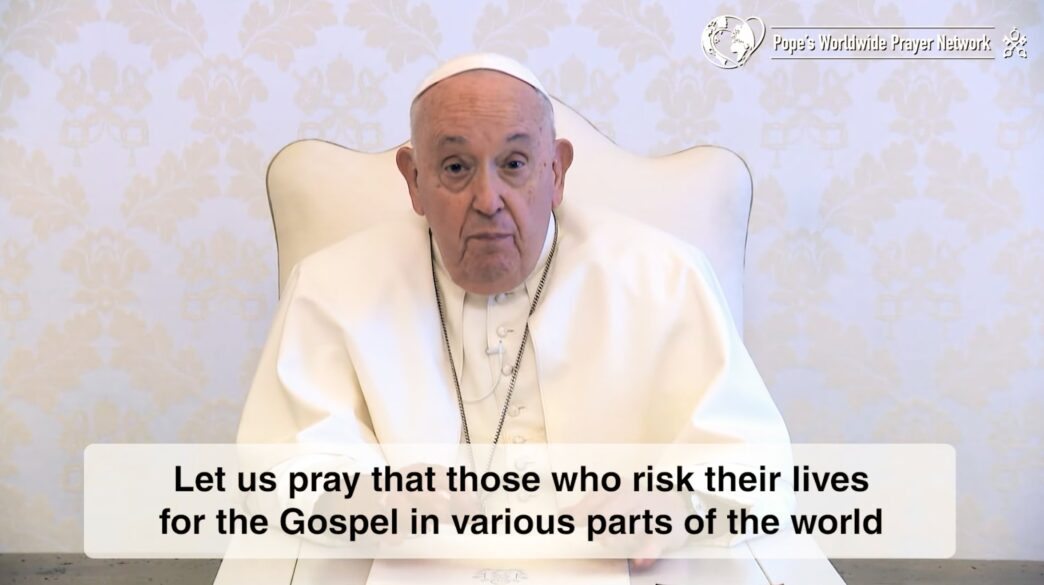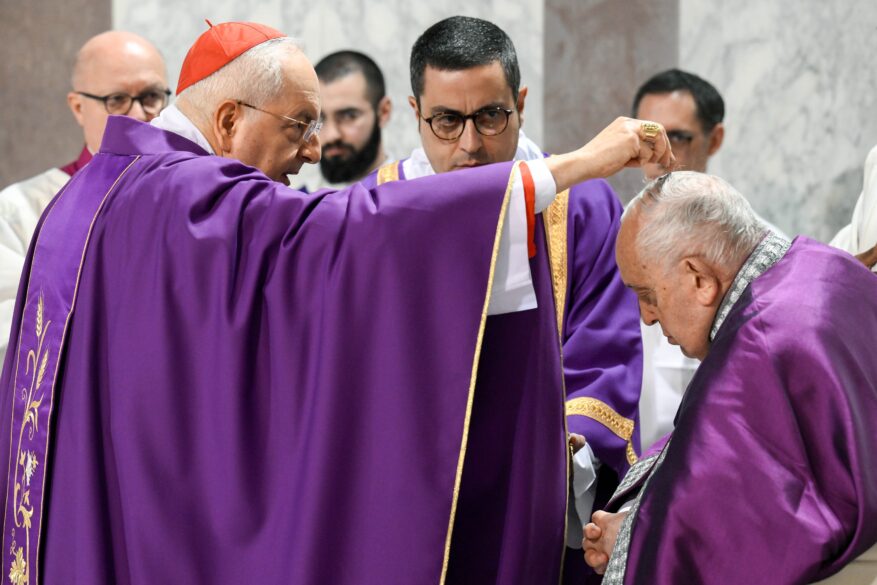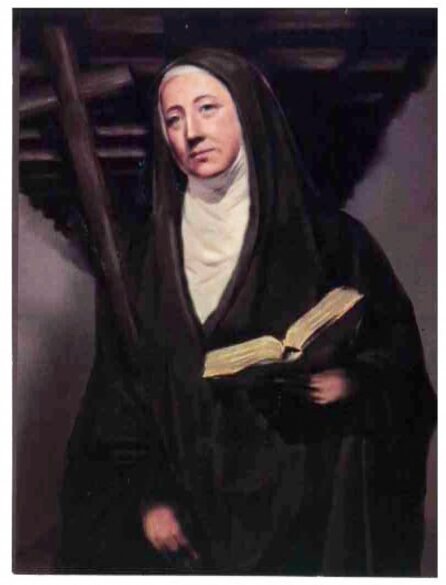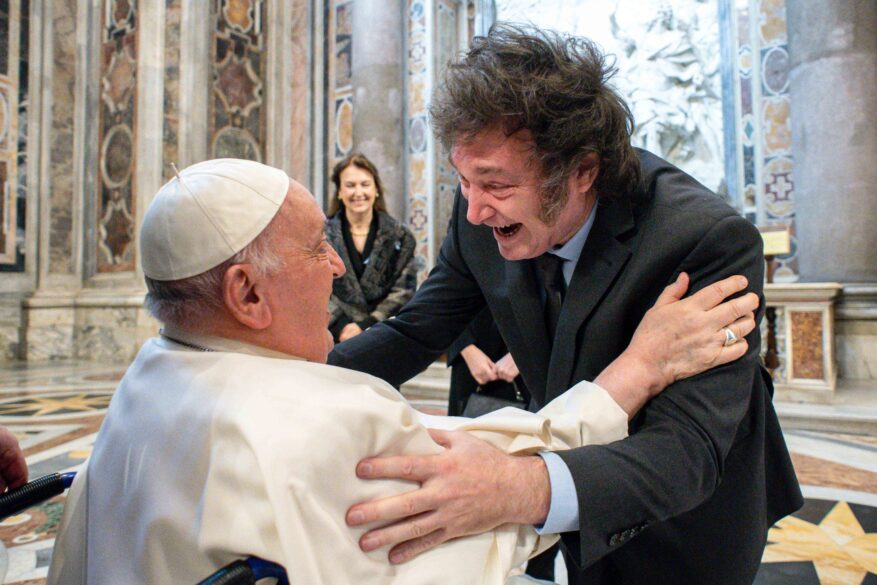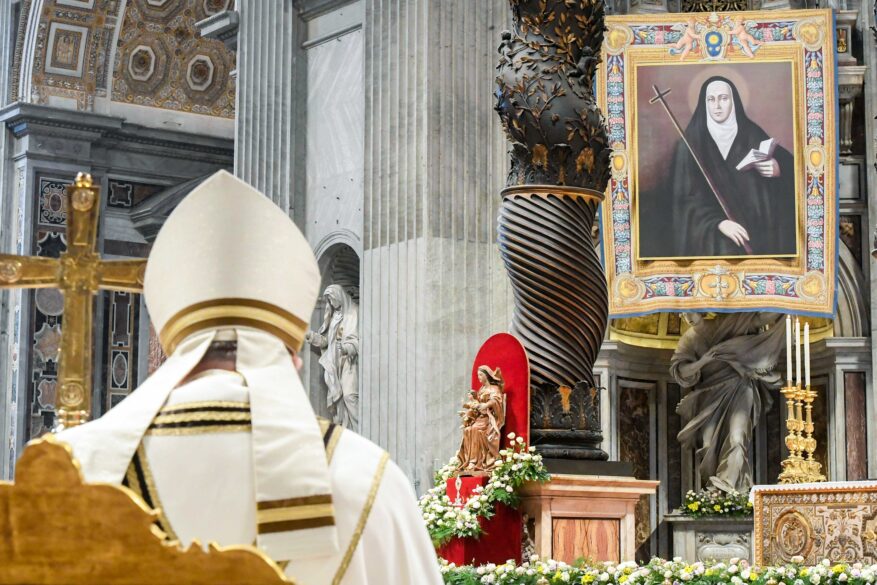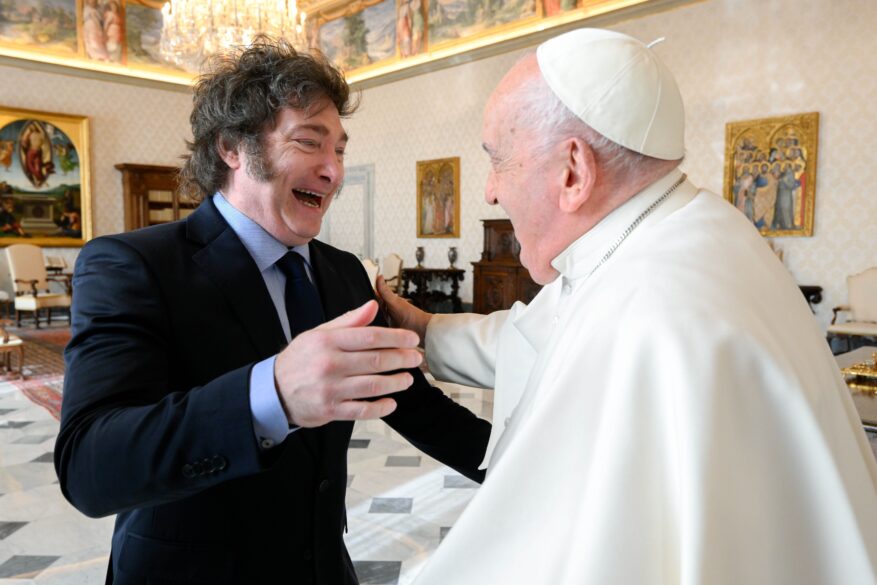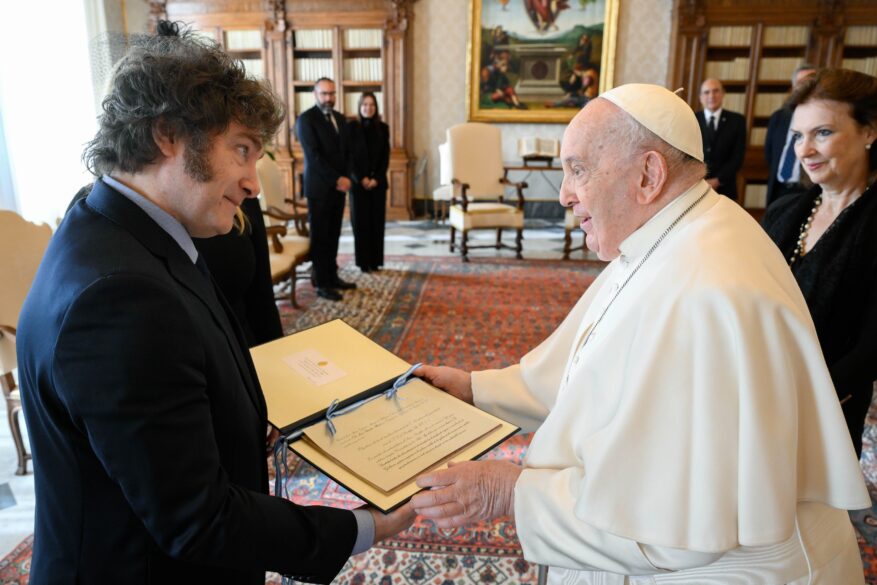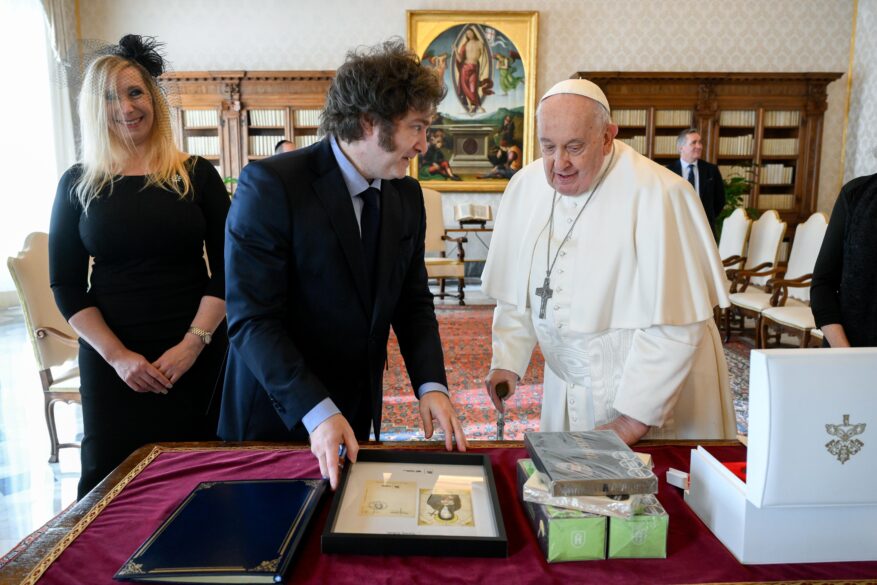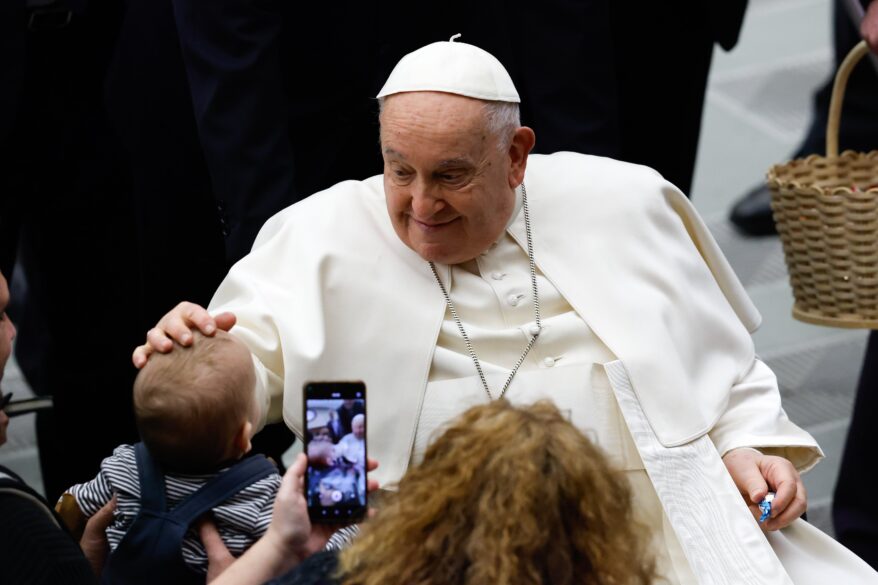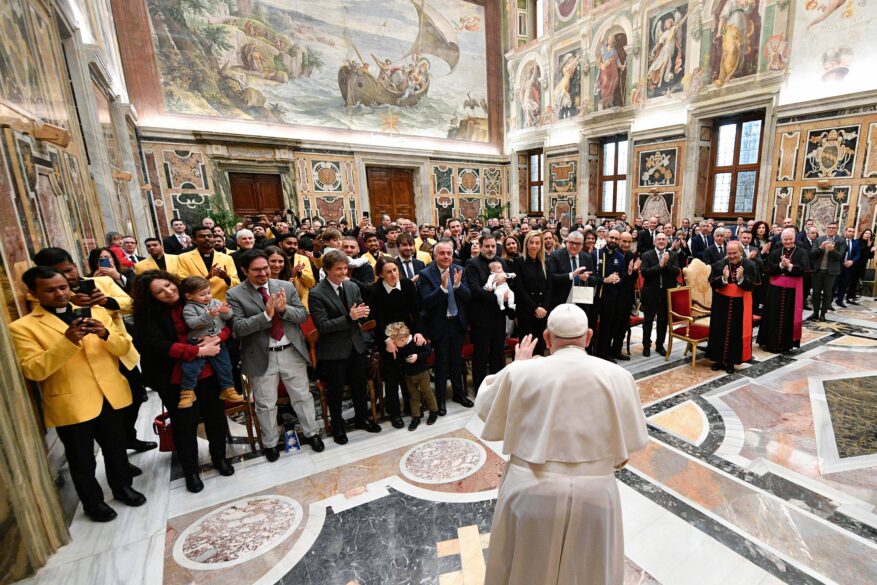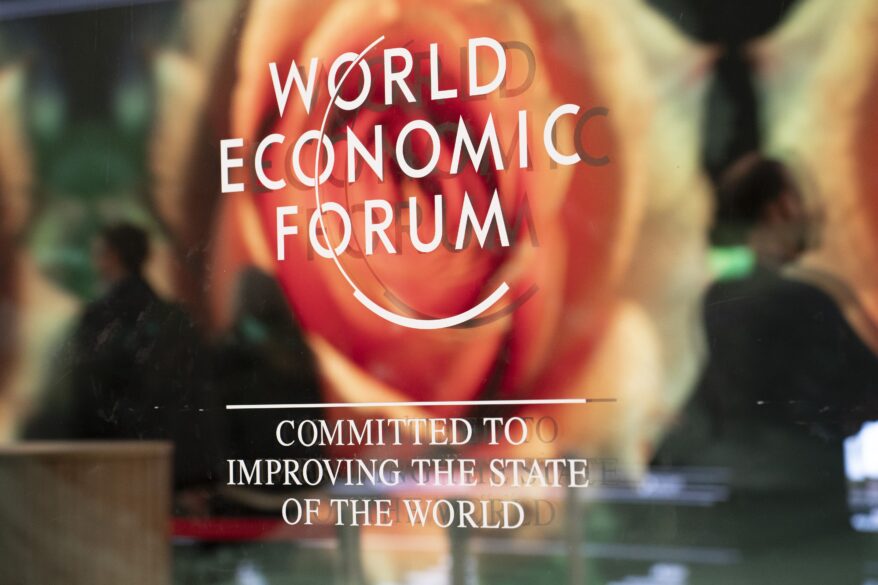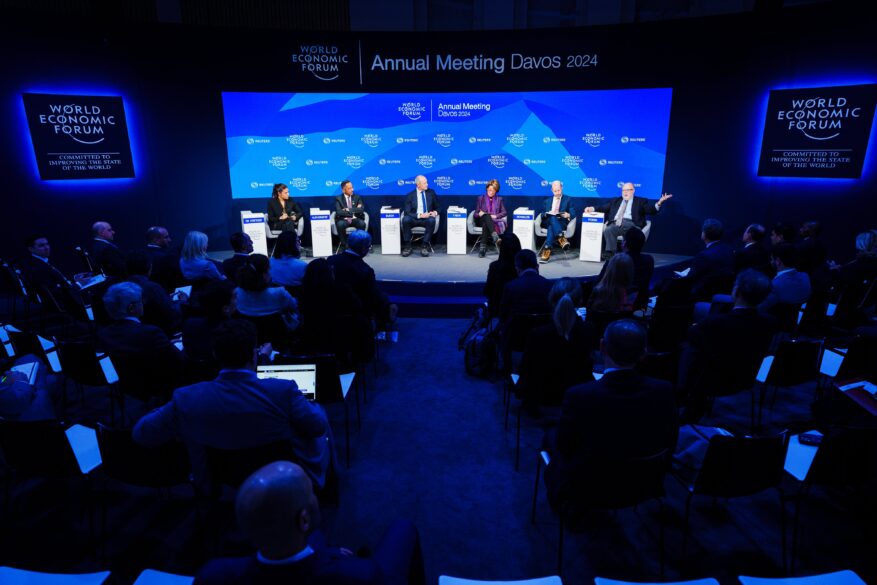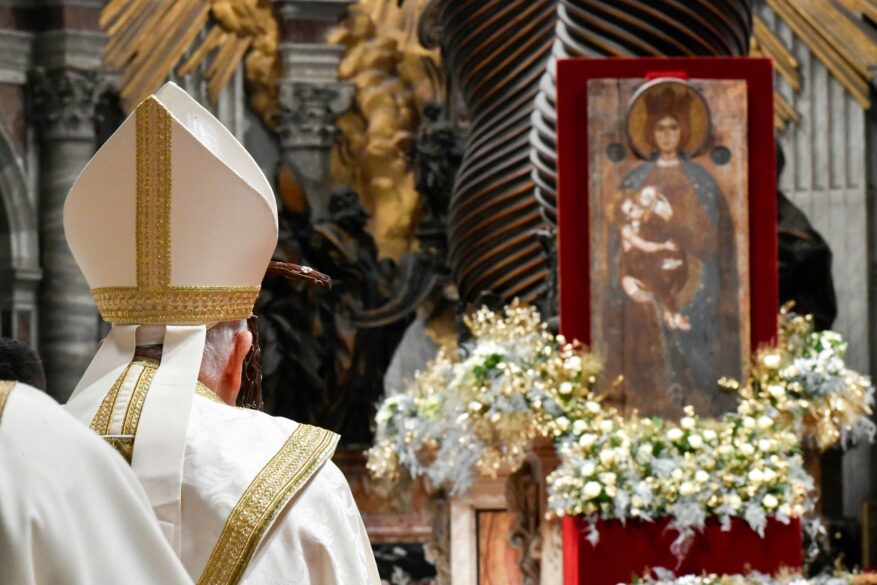By Cindy Wooden
VATICAN CITY (CNS) – Arriving in a wheelchair instead of walking with his cane, Pope Francis began his weekly general audience by telling visitors and pilgrims, “I’m still a bit sick,” so an aide would read his prepared text.
The pope had canceled his appointments Feb. 24 and Feb. 26 because of what the Vatican press office described as “mild flu-symptoms,” but Pope Francis led the recitation of the Angelus prayer Feb. 25 without obvious difficulty.
At his general audience Feb. 28, his voice was hoarser and softer. Besides briefly telling the crowd he would not be reading his prepared text, he took the microphone only to pray at the beginning and end of the gathering and to read his appeals for peace and for an end to the use of landmines.
The Italian news agency ANSA reported that Pope Francis went from the audience to Rome’s Gemelli Isola Hospital for a checkup before returning to the Vatican. In late November when he was suffering similar symptoms, he had gone to that hospital for a CT scan of his lungs.
The Vatican press office later said the pope had gone to the hospital for “diagnostic tests.” It provided no other information.
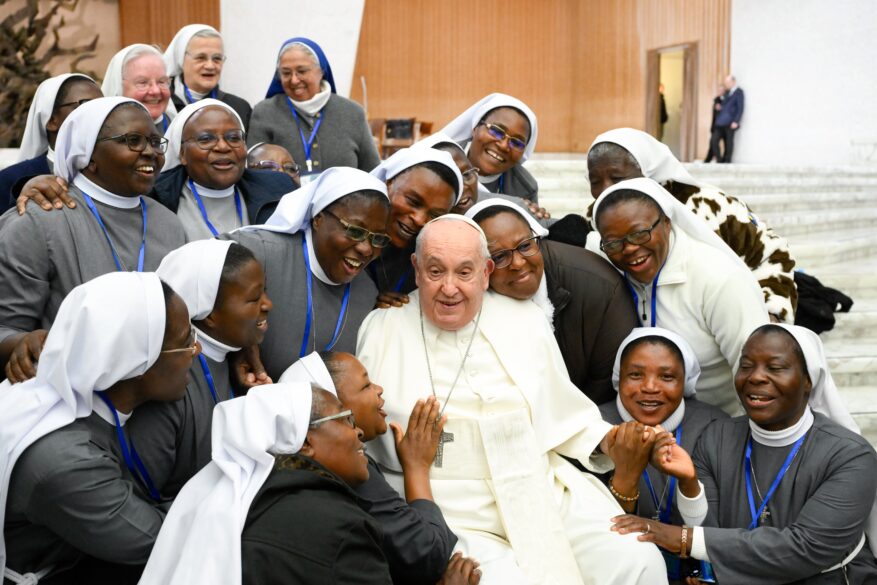
Pope Francis’ main audience talk focused on envy and vainglory, or exaggerated pride, as part of his continuing series of audience talks about vices and virtues.
Envy and vainglory “go hand in hand,” the pope wrote. “Together these two vices are characteristic of a person who aspires to be the center of the world, free to exploit everything and everyone, the object of all praise and love.”
Reading the Book of Genesis, envy appears to be “one of the oldest vices: Cain’s hatred of Abel is unleashed when he realizes that his brother’s sacrifices are pleasing to God,” he wrote.
“The face of the envious man is always sad: he’s always looking down, he seems to be continually investigating the ground; but in reality, he sees nothing, because his mind is wrapped up in thoughts full of wickedness,” he said. “Envy, if unchecked, leads to hatred of the other. Abel would be killed at the hands of Cain, who could not bear his brother’s happiness.”
The root of the vice and sin of envy, he said, “is a false idea of God: we do not accept that God has His own ‘math.’”
As an example, Pope Francis cited the parable from Matthew 20:1-16 about workers hired at different times of the day to work in a vineyard, but the owner pays them all the same.
When those who worked longest protest, the owner says, “Am I not allowed to do what I choose with what belongs to me? Or do you begrudge my generosity?”
“We would like to impose our own selfish logic on God; instead, the logic of God is love,” the pope’s text said. “The good things he gives us are meant to be shared. This is why St. Paul exhorts Christians, ‘Love one another with brotherly affection; outdo one another in showing honor’ (Rom. 12:10). Here is the remedy for envy!”
Pope Francis described vainglory as “an inflated and baseless self-esteem,” which leads to having no empathy and to seeing others only as objects to be used.
The vainglorious person “is a perpetual beggar for attention,” the pope wrote, and when recognition is not given, “he becomes fiercely angry.”
Usually, he said, the remedy for such pride comes automatically when people offer criticism rather than praise.
Proverbs 16:18 says, “Pride goes before disaster, and a haughty spirit before a fall.”
A wise person recognizes, as St. Paul did, that freedom comes from recognizing one’s weaknesses and failures, relying only on God for strength, Pope Francis’ text said.

